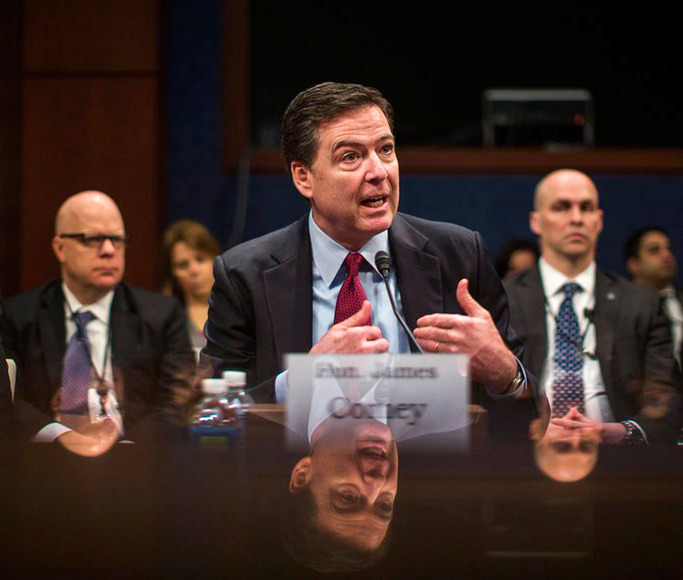Apple-FBI battle will set precedent for future court orders, FBI director acknowledges
Speaking in front of a Congressional intelligence panel, FBI Director James Comey admitted that the outcome of an Apple-FBI battle over unlocking an iPhone will likely set a legal precedent, despite recent suggestions to the contrary.
The final ruling will probably "guide how other courts handle similar requests," Comey told the panel on Thursday, according to The Guardian. The statement is a change in tone from Sunday, when Comey wrote an editorial stating that the case "isn't about trying to set a precedent or send any kind of message."
On Thursday, in fact, Comey also claimed that the case was "unlikely to be a trailblazer," though he added it would be "instructive for other courts." That isn't the agency's intent, he cautioned.
Comey maintained a position that the FBI's request is limited in scope, explaining that legal and technical experts told him the combination of an iPhone 5c and iOS 9 limited the potential applications of the court order. The order is asking Apple not to supply an encryption key, but rather to craft new software to bypass iOS 9's passcode retry limit, which can be set to auto-erase a device when hit. The target phone was owned by Syed Farook, one of the shooters in December's San Bernardino terrorist attack.
Apple has officially filed to vacate the order, arguing that the case would not only set precedent but do so in an unconstitutional manner, paving the way for future rights violations.
 Roger Fingas
Roger Fingas











 Andrew Orr
Andrew Orr
 Sponsored Content
Sponsored Content
 Malcolm Owen
Malcolm Owen

 William Gallagher
William Gallagher

 Mike Wuerthele
Mike Wuerthele
 Christine McKee
Christine McKee







